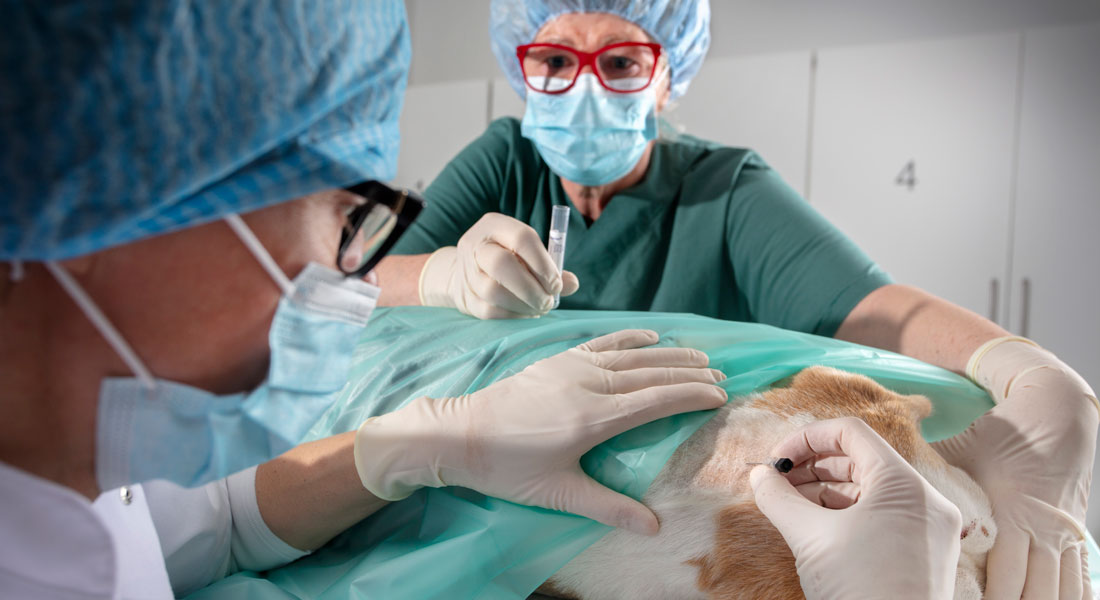Application period: 1 October 2022 to 1 May 2023
Master of Companion Animal Clinical Science (Neurology)

The Master of Companion Animal Clinical Science is a 60 ECTS postgraduate education targeted small animal veterinarians seeking continuing professional development.
The master's programme consists of 4 basic courses, 3 advanced specialisation courses, and a master's project.
The courses are designed with a minimum of physical attendance. Each course requires 5 or 6 consecutive days at the University Hospital for Companion Animals at the University of Copenhagen, Denmark.
Call opens: 1 October 2024
Application deadline: 1 May 2025
Specialisation in Companion Animal Neurology
Improve your level of expertise, advanced diagnostic work-up, treatment strategies and specialised surgical procedures in companion animal neurology.
This specialisation has a strong focus on advancing the participants understanding of pathogenesis, diagnostic options, therapeutic possibilities, and disease control regarding conditions affecting the central and peripheral nervous system of animals.
- Workshops on the clinical neurological examination and lesion localization
- Interpretation sessions and advanced workshops of neuroimaging including computer tomography (CT) and magnetic resonance imaging (MRI)
- Workshops on CSF collection and interpretation
- Workshops on neuro-surgery of the spine
- Advanced understanding of the principles underlying the clinical presentation and investigation of common diseases and syndromes affecting the central and peripheral nervous system in companion animals.
- Clinical expertise and practical professional skills targeting the clinical diagnostic approach to companion animal neurological patients, including the detection and localization of lesions in the central and peripheral nervous system.
- Advanced level of knowledge, skills, and competences of when to use and how to assess neurodiagnostic tests such as Computed Tomography (CT), Magnetic Resonance Imaging (MRI) and cerebrospinal fluid (CSF) examination (collection, preparation, and cytology), and how to combine test results with clinical findings to form a diagnostic conclusion.
- Experience and advanced level expertise in therapeutic planning and rehabilitation of companion animal neurological patients.
Specialisation responsible
The responsible course leader at the specialisation track in Companion Animal Neurology is:
Professor Mette Berendt, Dept. of Veterinary Clinical and Animal Sciences, Faculty of Health and Medical Sciences, University of Copenhagen
Lecturers at the specialisation in Neurology
Lecturers with specialist knowledge in the field will be invited to contribute.
NB: If you hold a Nordic certificate in Companion Animal Diseases, you may be admitted directly to the advanced courses. For more details, please consult the admission criteria.
